|
Upcoming Event
Energy Security Seminar on ‘Risk and Resilience: Securing Energy in Insecure Spaces’
29 – 30 October 2012
RSIS Centre for Non-Traditional Security (NTS) Studies
Singapore
 |
| Credit: Aquafornia/flickr. |
The RSIS Centre for NTS Studies is organising a Seminar on ‘Risk and Resilience: Securing Energy in Insecure Spaces’. This seminar is organised for government representatives from defence and security agencies in the region.
The latter half of the twentieth century brought a global post-war boom and exponential increase in demand for energy supplies to fuel these booms. As newly-emerging economies joined the race for energy, this put strains on global energy sources, especially oil and gas. As supplies of oil and gas from traditional sources such as the Middle East peaked and prices rose, one trend has been to seek conventional oil and gas in insecure locations – places where oil had not been extracted previously because of the latent risks. The second new area is to source oil and gas in unconventional forms – especially shale and oil sands. New technologies and high oil prices have made extraction of previously uneconomic sources of oil and gas in such geological fields possible. For net oil and gas importers, while sourcing energy in insecure or new areas might heighten external risk in one respect, diversification of supply increases its resilience. These new areas of energy supply are thus crucial in balancing energy security of a country and there needs to be a closer look at these new sources and assess the trade-off between risks and resilience. The optimum balance may often be a moving target, and understanding these new areas to remain ahead of developments is vital for policymakers and industry leaders to make the right decisions.
Against this backdrop, this one-and-a-half-day closed-door seminar seeks to bring together experts to discuss these themes on energy security. The aims would be to increase awareness of the new spaces in which energy security is being pursued, as well as to kick-start discussions on the implications of these new developments.
Click here to access the Centre’s website.
Roundtable Discussion on ‘Managing Cross-Border Movements of People:
Promoting Capacity and Response for Irregular Movement’
19 – 20 November 2012
RSIS Centre for Non-Traditional Security (NTS) Studies
Singapore
 |
| Credit: digital.democracy/flickr. |
Most migration occurs within legitimate legal and policy frameworks. However, increasingly, new forms of irregular migration are developing that existing policies and laws are not able to address. Irregular migration – that is, the movement of people outside the regulatory norms of the countries of origin, transit or destination – represents one of the greatest challenges to the ability of states to effectively manage migration.
Every country in Southeast Asia is affected by irregular migration whether as a country of origin, transit or destination for victims. Of particular concern to the region are undocumented labour migration and human trafficking, and these areas have extensive national laws relating to the issue. However, there may be gaps in these laws that are unable to address other forms of movement, particularly refugees, asylum seekers and climate change-induced migrants.
Against this backdrop, the RSIS Centre for NTS Studies is hosting a closed-door Roundtable Discussion on ‘Managing Cross-Border Movements of People: Promoting Capacity and Response for Irregular Migration’ on 19–20 November 2012 to address the conceptual ambiguities on irregular migration and emerging trends in movements of people, as well as assess existing responses to the broad range of movements of people in the Asia-Pacific region.
The Roundtable Discussion aims to do the following: (1) increase understanding on the nature and scope of emerging irregular migratory movements; (2) examine the varying impacts of different typologies of irregular migrants; (3) examine the types of responses to the phenomenon from human-centric and state-centred approaches, including the adequacy and effectiveness of the respective legal, policy, institutional, operational and management frameworks and exploring ways of enhancing such frameworks; (4) identify the gaps of existing responses to the changing phenomenon of irregular movements of people; (5) examine the efficacy of regional agreements such as the Bali Process; and (6) analyse the possibilities of increasing the legitimate space for addressing irregular migration beyond existing measures.
To access the tentative programme for this discussion, please click here.
^ To the top
Announcements
Launch of Migration Studies Journal
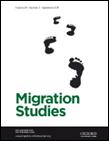 Migration Studies, an international refereed journal will be launched in 2013. This journal seeks to advance scholarly understanding of the determinants, processes and outcomes of human migration in all its manifestations. It intends to give priority to work presenting methodological, comparative or theoretical advances. RMMRU’s (Refugee and Migratory Movements Research Unit) Dr Tasneem Siddiqui, Professor in the Department of Political Science, University of Dhaka, is a member of the journal’s editorial board. Migration Studies, an international refereed journal will be launched in 2013. This journal seeks to advance scholarly understanding of the determinants, processes and outcomes of human migration in all its manifestations. It intends to give priority to work presenting methodological, comparative or theoretical advances. RMMRU’s (Refugee and Migratory Movements Research Unit) Dr Tasneem Siddiqui, Professor in the Department of Political Science, University of Dhaka, is a member of the journal’s editorial board.
Click here for more information on paper submissions.
WorldFish Centre’s Egypt Staff Presented Award for Dedication and Commitment during Turbulent 2011
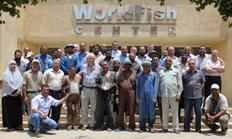 Worldfish staff in Egypt were recently awarded the ‘Special Award from the Board of Trustees’ in recognition of their dedication and commitment to maintaining the operation of WorldFish in Egypt, despite the turbulent social and political environment during 2011. WorldFish has invested in aquaculture research in Egypt for more than 20 years, and the ongoing work of all staff in Cairo and Abbassa helps WorldFish to continue to assist Egyptian fish farmers. Worldfish staff in Egypt were recently awarded the ‘Special Award from the Board of Trustees’ in recognition of their dedication and commitment to maintaining the operation of WorldFish in Egypt, despite the turbulent social and political environment during 2011. WorldFish has invested in aquaculture research in Egypt for more than 20 years, and the ongoing work of all staff in Cairo and Abbassa helps WorldFish to continue to assist Egyptian fish farmers.
SPRING and WorldFish to Work Together towards Improving Nutritional Health in Bangladesh
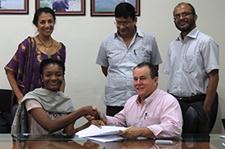 The WorldFish Centre and SPRING Bangladesh signed a Letter of Collaboration (LoC) on 8 August, signifying their commitment to work together to improve the nutritional status of women and young children in the Barisal and Khulna divisions. The collaboration will help promote the consumption and sale of nutrient-rich small fish species and seasonal vegetables, and will benefit close to 72,000 households. The WorldFish Centre and SPRING Bangladesh signed a Letter of Collaboration (LoC) on 8 August, signifying their commitment to work together to improve the nutritional status of women and young children in the Barisal and Khulna divisions. The collaboration will help promote the consumption and sale of nutrient-rich small fish species and seasonal vegetables, and will benefit close to 72,000 households.
Regional Director of The WorldFish Centre for Bangladesh and South Asia, William J. Collis, and the Country Manager of SPRING Bangladesh, Ms Elizabeth Isimhen, came together to sign the LoC. The agreed areas of collaboration include assistance with training, sharing of data and materials related to fish and horticultural interventions, and nutrient analysis of food items.
For more information about this partnership, please click here.
Regional Centre for Strategic Studies’ (RCSS) Book Launch in Kathmandu
 RCSS launched a new book, Building Bridges and Promoting People to People Interaction in South Asia, on 6 August 2012 in Kathmandu, Nepal. The book was edited by Dr Nishthal Pandy, Director of the Centre for South Asian Studies, and sponsored by the Global Partnership for the Prevention of Armed Conflict (GPPAC) and RCSS. Mr Madhu Raman Acharya, Nepal’s former Foreign Secretary, was the event’s Guest of Honour. Members of GPPAC South Asia and Nepal’s strategic community members attended the book launch. RCSS launched a new book, Building Bridges and Promoting People to People Interaction in South Asia, on 6 August 2012 in Kathmandu, Nepal. The book was edited by Dr Nishthal Pandy, Director of the Centre for South Asian Studies, and sponsored by the Global Partnership for the Prevention of Armed Conflict (GPPAC) and RCSS. Mr Madhu Raman Acharya, Nepal’s former Foreign Secretary, was the event’s Guest of Honour. Members of GPPAC South Asia and Nepal’s strategic community members attended the book launch.
|
^ To the top
Recent Events
Official Launch of Phase 2 of The Asia Pacific Centre for the Responsibility to Protect
‘Protecting Populations from Mass Atrocities’
2 October 2012
Asia-Pacific Centre for the Responsibility to Protect (APCR2P)
Brisbane, Australia
 The NATO-led intervention in Libya in 2011 and the ongoing crisis in Syria has sparked a wide range of commentaries on the Responsibility to Protect (RtoP) principle that was adopted at the 2005 World Summit as a global compact to protect populations from genocide, war crimes, crimes against humanity and ethnic cleansing. These recent and high profile instances of intervention and non-intervention have propelled RtoP into the public discourse about humanitarian protection; just as RtoP continues to shape the diplomatic frames that states and regional/international institutions use to respond to mass atrocities. This official launch featured a panel discussion that brought together the Centre’s leading researchers – Prof. Alex Bellamy, Dr Sarah Davies, Prof. Tim Dunne and Dr Noel Morada – to outline how their projects will advance policy-relevant research over the next three years. The NATO-led intervention in Libya in 2011 and the ongoing crisis in Syria has sparked a wide range of commentaries on the Responsibility to Protect (RtoP) principle that was adopted at the 2005 World Summit as a global compact to protect populations from genocide, war crimes, crimes against humanity and ethnic cleansing. These recent and high profile instances of intervention and non-intervention have propelled RtoP into the public discourse about humanitarian protection; just as RtoP continues to shape the diplomatic frames that states and regional/international institutions use to respond to mass atrocities. This official launch featured a panel discussion that brought together the Centre’s leading researchers – Prof. Alex Bellamy, Dr Sarah Davies, Prof. Tim Dunne and Dr Noel Morada – to outline how their projects will advance policy-relevant research over the next three years.
Click here for more information.
Head of the RSIS Centre for NTS Studies Makes Case for Effective Governance at the Singapore Global Dialogue 2012
20 – 21 September 2012
S. Rajaratnam School of International Studies (RSIS)
Singapore
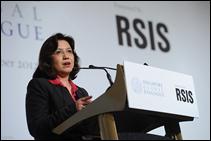 This year’s Singapore Global Dialogue saw Head of the RSIS Centre for Non-Traditional Security (NTS) St udies Assoc. Prof. Mely Caballero-Anthony speaking at the session on ‘Contemporary Global Challenges’. She focused on the need for more effective governance in the face of the rising NTS challenges seen in the world today. This year’s Singapore Global Dialogue saw Head of the RSIS Centre for Non-Traditional Security (NTS) St udies Assoc. Prof. Mely Caballero-Anthony speaking at the session on ‘Contemporary Global Challenges’. She focused on the need for more effective governance in the face of the rising NTS challenges seen in the world today.
Organised by RSIS, the annual Singapore Global Dialogue brings together a distinguished group of key policy practitioners, business leaders, professionals and public-opinion makers from around the world to examine current challenges to the global order in an effort to find solutions to both the traditional and non-traditional security issues confronting the Asia Pacific and the rest of the world.
Fellow panellists included Muthiah Alagappa, Tun Hussein Onn Chair in International Studies at the Institute of Strategic and International Studies (ISIS), Malaysia, and concurrently Non-Resident Senior Associate of the Carnegie Endowment for International Peace, Washington, D.C.; and Efraim Inbar, Director of the Begin-Sadat (BESA) Center for Strategic Studies, Bar-Ilan University, Israel.
The panel addressed some of the most profound and urgent challenges to the world’s security today, including: Will the build-up to crisis over Iran’s nuclear ambitions bring unprecedented upheaval or can it be averted? How will the turbulence in Afghanistan play out as the US begins to withdraw its forces? What are the lessons that could be gleaned from the popular uprisings associated with the Arab Spring? In the wake of the Fukushima disaster, what is to become of the promise of a nuclear renaissance?
Click here for more information on the event.
Annual Michael Hintze Lecture in International Security: ‘Australia and the World’
19 September 2012
Centre for International Security Studies (CISS)
Sydney, Australia
 One of Australia’s most senior and respected officials, Dennis Richardson, delivered the 2012 Michael Hintze Lecture. Asia is now undoubtedly emerging as the most economically dynamic region in the world, shifting the centre of power and influence from the Atlantic to the Pacific and possibly Indian Oceans. For the first time in history, Australia’s largest trading partner (China) is not a member of the western alliance. Additionally, we are witnessing the re-emergence of other powers outside the formal western alliance system such as India, Indonesia and Vietnam – each with their own strategic and economic priorities and interests. It is obvious that these unprecedented developments will present opportunities and challenges to Australia. Dennis Richardson is the Secretary of the Department of Foreign Affairs and Trade and former ambassador of Australia to the United States. He was the Director-General of the Australian Security Intelligence Organisation from 1996–2005 and Head of the Review of the Intelligence Community post-Cold War. One of Australia’s most senior and respected officials, Dennis Richardson, delivered the 2012 Michael Hintze Lecture. Asia is now undoubtedly emerging as the most economically dynamic region in the world, shifting the centre of power and influence from the Atlantic to the Pacific and possibly Indian Oceans. For the first time in history, Australia’s largest trading partner (China) is not a member of the western alliance. Additionally, we are witnessing the re-emergence of other powers outside the formal western alliance system such as India, Indonesia and Vietnam – each with their own strategic and economic priorities and interests. It is obvious that these unprecedented developments will present opportunities and challenges to Australia. Dennis Richardson is the Secretary of the Department of Foreign Affairs and Trade and former ambassador of Australia to the United States. He was the Director-General of the Australian Security Intelligence Organisation from 1996–2005 and Head of the Review of the Intelligence Community post-Cold War.
Click here to read a full transcript of the Michael Hintze Lecture.
RMMR Training Workshop on ‘Climate Change-related Migration in Bangladesh’
10 – 13 September 2012
Dhaka, Bangladesh
 The Training Workshop on ‘Climate Change-related Migration in Bangladesh’ held on 10–13 September 2012 at the Centre for Advanced Research in Sciences in the University of Dhaka, was jointly organised by the Refugee and Migratory Movements Research Unit (RMMRU), University of Dhaka, and the Sussex Centre for Migration Research (SCMR), University of Sussex, with the support of the Climate and Development Knowledge Network (CDKN). The Workshop sought to develop research capacities to conduct quantitative surveys of climate change-related migration. Graduate students from various departments in the University of Dhaka, Jagannath University and North-South University participated alongside RMMRU researchers in the Workshop. Resource persons for the Workshop were Dr Richard Black and Ms Eva Christina Oelgemöller from SCMR, University of Sussex, and Dr Tasneem Siddiqui of the Department of Political Science, University of Dhaka. The Training Workshop on ‘Climate Change-related Migration in Bangladesh’ held on 10–13 September 2012 at the Centre for Advanced Research in Sciences in the University of Dhaka, was jointly organised by the Refugee and Migratory Movements Research Unit (RMMRU), University of Dhaka, and the Sussex Centre for Migration Research (SCMR), University of Sussex, with the support of the Climate and Development Knowledge Network (CDKN). The Workshop sought to develop research capacities to conduct quantitative surveys of climate change-related migration. Graduate students from various departments in the University of Dhaka, Jagannath University and North-South University participated alongside RMMRU researchers in the Workshop. Resource persons for the Workshop were Dr Richard Black and Ms Eva Christina Oelgemöller from SCMR, University of Sussex, and Dr Tasneem Siddiqui of the Department of Political Science, University of Dhaka.
WorldFish Scientists Shared Expertise at Seafood Summit
6 – 8 September 2012
Hong Kong
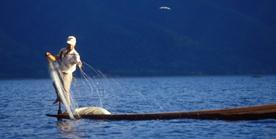 WorldFish experts in the fields of fisheries and aquaculture for development presented and contributed to discussions on sustainable aquaculture at SeaWeb’s 10th International Seafood Summit hosted in Hong Kong. WorldFish Director General, Dr Stephen Hall, noted that SeaWeb’s Seafood Summit provides a platform for global representatives from the seafood industry and conservation community to discuss the future of one of the world’s most dynamic food systems. ‘We have a major challenge facing us to sustain wild fisheries and harness aquaculture’s potential to meet the world’s demand for fish. This Summit will help us meet that challenge’, Stephen said. WorldFish experts in the fields of fisheries and aquaculture for development presented and contributed to discussions on sustainable aquaculture at SeaWeb’s 10th International Seafood Summit hosted in Hong Kong. WorldFish Director General, Dr Stephen Hall, noted that SeaWeb’s Seafood Summit provides a platform for global representatives from the seafood industry and conservation community to discuss the future of one of the world’s most dynamic food systems. ‘We have a major challenge facing us to sustain wild fisheries and harness aquaculture’s potential to meet the world’s demand for fish. This Summit will help us meet that challenge’, Stephen said.
The Summit is the world’s premier sustainable seafood event, and WorldFish scientists Dr Michael Phillips and Dr Malcolm Beveridge shared their research on how sustainable aquaculture can feed a growing global population.
For more information, please click here.
BISS Regional Conference on
‘Development and Management of River Basins: The Case of the Ganges-Brahmaputra-Meghna (GDM)’
5 – 6 September 2012
Bangladesh Institute of International and Strategic Studies (BIISS)
Dhaka, Bangladesh
 BIISS in collaboration with the SAARC Regional Programme of the Konrad-Adenaur-Stiftung (KAS) organised a two-day Regional Conference on ‘Development and Management of River Basins: The Case of the Ganges-Brahmaputra-Meghna (GBM)’on 5–6 September 2012 at the BIISS Auditorium, Dhaka. Scholars and policymakers from Bangladesh, China, India, Nepal and Thailand participated in the Regional Conference which was divided into four working sessions. 7 speakers delivered presentations on various issues related to the development and management of river basins, particularly the GBM basins. BIISS in collaboration with the SAARC Regional Programme of the Konrad-Adenaur-Stiftung (KAS) organised a two-day Regional Conference on ‘Development and Management of River Basins: The Case of the Ganges-Brahmaputra-Meghna (GBM)’on 5–6 September 2012 at the BIISS Auditorium, Dhaka. Scholars and policymakers from Bangladesh, China, India, Nepal and Thailand participated in the Regional Conference which was divided into four working sessions. 7 speakers delivered presentations on various issues related to the development and management of river basins, particularly the GBM basins.
Click here to access papers delivered at the Conference.
Expert Working Group Meeting on ‘Food Wastage in Southeast Asia’
23 – 24 August 2012
RSIS Centre for Non-Traditional Security (NTS) Studies
Singapore
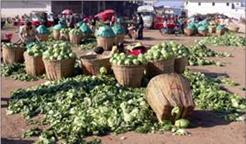 The RSIS Centre for NTS Studies hosted a closed Expert Working Group Meeting in Singapore on 23–24 August 2012 to address the loss and wastage of food in Southeast Asia. The Meeting was convened with support from Singapore’s National Security Coordination Secretariat (NSCS). The RSIS Centre for NTS Studies hosted a closed Expert Working Group Meeting in Singapore on 23–24 August 2012 to address the loss and wastage of food in Southeast Asia. The Meeting was convened with support from Singapore’s National Security Coordination Secretariat (NSCS).
The wastage of food is one of the most significant yet under-recognised global issues in the effort to combat food insecurity. Just how significant is unclear: relatively little data is available on the extent of food wastage and its impact on the world’s food systems. Southeast Asia as a region suffers from a lack of information on food wastage along supply chains in key food commodities. In order to address the issue, developing accurate and relevant information on the scope and causes of food wastage is essential.
The Meeting was structured around the conceptual framework of the ‘life cycle’ of food which takes the entire food supply chain into account. Topics for discussion included: global food wastage; the extent of losses and wastage in vegetable, rice and fish supply chains in Asia; methodologies for quantifying wastage at various points in supply chains; overview of current state of technologies for addressing food losses and waste; and private and public sector food wastage prevention measures. The Meeting sought to offer tangible plans of action for increasing knowledge in these areas and for ultimately producing policy-relevant research outcomes.
Click here for more information, as well as to access speakers’ presentations and papers delivered during the Meeting.
RSIS Centre for NTS Studies Participated in NTU’s Sustainable Earth Peak Launch
18 August 2012
RSIS Centre for Non-Traditional Security (NTS) Studies
Singapore
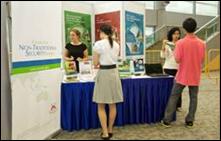 The RSIS Centre for NTS Studies participated in the Sustainable Earth Peak Launch on Saturday, 18 August, an event which officially launched NTU’s comprehensive sustainability enterprise led by the Sustainable Earth Office (SEO). Launch activities included a concert and an exhibition that showcased the various projects involved in the Sustainable Earth Peak project. The event was attended by Mr Choi Shing Kwok, Permanent Secretary from the Singapore Ministry of the Environment and Water Resources (MEWR). The RSIS Centre for NTS Studies participated in the Sustainable Earth Peak Launch on Saturday, 18 August, an event which officially launched NTU’s comprehensive sustainability enterprise led by the Sustainable Earth Office (SEO). Launch activities included a concert and an exhibition that showcased the various projects involved in the Sustainable Earth Peak project. The event was attended by Mr Choi Shing Kwok, Permanent Secretary from the Singapore Ministry of the Environment and Water Resources (MEWR).
Click here for more information.
CISS Senior Lecturer Presented to Parliamentary Committee on Transborder Health Issues
2 August 2012
Centre for International Security Studies (CISS)
Cairns, Australia
 Dr Adam Kamradt-Scott was invited to present his research findings to the Australian Parliamentary Standing Committee on Health and Ageing Roundtable on health issues across international borders in Cairns on 2 August 2012. Adam addressed the Committee on the preparedness of the Asia-Pacific region to respond to transborder health threats such as pandemic influenza, SARS and tuberculosis. Dr Adam Kamradt-Scott was invited to present his research findings to the Australian Parliamentary Standing Committee on Health and Ageing Roundtable on health issues across international borders in Cairns on 2 August 2012. Adam addressed the Committee on the preparedness of the Asia-Pacific region to respond to transborder health threats such as pandemic influenza, SARS and tuberculosis.
More details can be found here.
11th ASEFUAN Annual Academic Conference and General Meeting
31 July – 1 August 2012
Institute for Strategic and Development Studies (ISDS)
Manila, Philippines
 ISDS co-organised the 11th Asia-Europe Foundation University Ulumni Network (ASEFUAN) Annual Academic Conference and General Meeting in collaboration with the AFEFUAN, Asia-Europe Foundation (ASEF), the Ateneo Human Rights Center, the Conflict Resolution Group Foundation, Inc., and the Ateneo de Manila University. Meeting sessions focused on the following themes: (1) Contemporary Challenges of Peacebuilding in Asia and Europe; (2) Complex Conflicts: Gender, Minorities and Ethnicity; (3) Towards Solutions: Multinational Engagement in Peacebuilding; (4) Solutions beyond the State: Innovative Approaches to Non-Violent Change; and (5) Another World is Possible: The Way to Peace. ISDS co-organised the 11th Asia-Europe Foundation University Ulumni Network (ASEFUAN) Annual Academic Conference and General Meeting in collaboration with the AFEFUAN, Asia-Europe Foundation (ASEF), the Ateneo Human Rights Center, the Conflict Resolution Group Foundation, Inc., and the Ateneo de Manila University. Meeting sessions focused on the following themes: (1) Contemporary Challenges of Peacebuilding in Asia and Europe; (2) Complex Conflicts: Gender, Minorities and Ethnicity; (3) Towards Solutions: Multinational Engagement in Peacebuilding; (4) Solutions beyond the State: Innovative Approaches to Non-Violent Change; and (5) Another World is Possible: The Way to Peace.
Intelligence Squared Debate: ‘We’ve Nothing to Fear from a Powerful China”
with CISS Fellow John Lee
31 July 2012
Centre for International Security Studies (CISS)
Australia
 Organised by CISS, July’s Intelligence Squared Debate saw CISS Hintze Fellow Dr John Lee arguing against the proposition ‘We’ve Nothing to Fear from a Powerful China’ with Executive Director of the Centre for Strategic and International Studies (CSIS) Jakarta, Dr Rizal Sukma, arguing for the proposition. The debate was filmed by the BBC with a global audience of 70 million people. It also featured four speakers rather than six, allowing for greater audience participation. Organised by CISS, July’s Intelligence Squared Debate saw CISS Hintze Fellow Dr John Lee arguing against the proposition ‘We’ve Nothing to Fear from a Powerful China’ with Executive Director of the Centre for Strategic and International Studies (CSIS) Jakarta, Dr Rizal Sukma, arguing for the proposition. The debate was filmed by the BBC with a global audience of 70 million people. It also featured four speakers rather than six, allowing for greater audience participation.
Click here for more information about the debate.
^ To the top
Recent Publications
Ownership Restructuring, Marketization and Wealth Inequality in Urban China: 1995 and 2002
 Xiaobin He and Zhuo Huang, China & World Economy, Vol. 20, No. 5, pp. 37–62, September–October 2012. Xiaobin He and Zhuo Huang, China & World Economy, Vol. 20, No. 5, pp. 37–62, September–October 2012.
This paper proposes a property transformation perspective to examine the mechanisms of wealth accumulation and wealth inequality creation during China’s post-1978 transformation. It examines how enterprise ownership restructuring, marketisation and state politics have resulted in greater wealth inequality between cadres and ordinary workers, between public sectors/organisations and private sectors/organisations. Mainly drawing on data from the Chinese Household Income Project conducted in 1995 and 2002, it was found that the property transformation process has created greater wealth disparity among different occupational groups and among those working in different work organisations since the mid-1990s. However, it is inconclusive whether non-housing wealth or total household wealth are increasing at the same pace across different occupations and work organisations with the growing market penetration and the spread of privatisation. |
|
Strategic Interaction in Spending on Environmental Protection: Spatial Evidence from Chinese Cities
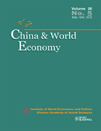 Huihui Deng, Xinye Zheng, Huang Huang et al., China & World Economy, Vol. 20, No. 5, pp. 103–20, September–October 2012. Huihui Deng, Xinye Zheng, Huang Huang et al., China & World Economy, Vol. 20, No. 5, pp. 103–20, September–October 2012.
In China, the responsibility of protecting the environment lies largely with local governments. Within the framework of spatial econometrics, we investigate empirically the consequence of such an institutional setting. Using city-level data for China, the present study finds that city governments behave strategically in making spending decisions regarding environmental protection. This paper finds that a city government appears to cut its own spending as a response to the rise in environmental protection spending by its neighbours. Hence, environmental protection tends to be underprovided. As a result, we suggest that centralising the environmental protection responsibility to a higher level of government would be beneficial in terms of controlling pollution in China. |
|
Human Security and Climate Change in Southeast Asia: Managing Risk and Resilience
 Lorraine Elliott and Mely Caballero-Anthony (eds), Routledge, 2012. Lorraine Elliott and Mely Caballero-Anthony (eds), Routledge, 2012.
This book makes an important and timely contribution to debates about the relationship between climate change and security in Southeast Asia. It does so through a human security lens, drawing on local and regional expertise to discuss the threats that climate change poses to human security in Southeast Asia and to show how a human security approach draws attention to the importance of adaptation and strategies for social resilience. In doing so, it exposes the consequences of climate change, the impact on community rights and access, the special problem of border areas, before going on to investigate local and regional strategies for addressing the human security challenges of climate change. |
|
Nuclear Power and Energy Security in Asia
 Rajesh Basrur and Koh Swee Lean Collin (eds), Routledge, 2012. Rajesh Basrur and Koh Swee Lean Collin (eds), Routledge, 2012.
The rising demand for energy, the higher costs of oil and gas, and the association of fossil fuels with adverse climate change have all brought a renewed interest in nuclear energy. Nuclear power, however, is itself controversial, because of its costs, its environmental effects and the security risks it poses. This book discusses these critical issues surrounding nuclear power in relation to Asia. It discusses also the politics of nuclear power and the activities of civil society organisations concerned about nuclear issues. Throughout the book, the perspectives of both proponents and opponents of nuclear power on the key controversial issues are included. |
|
Climate Change, Migration and Human Security in Southeast Asia
 Lorraine Elliott, RSIS Monograph, No. 24, Lorraine Elliott, RSIS Monograph, No. 24,
RSIS Centre for Non-Traditional Security (NTS) Studies, 2012.
The proposition that migration as a result of climate change has consequences for regional and global security has become prominent in public discourse over the last few years. Yet much of that debate in the Southeast Asian context is not sufficiently well-informed by current knowledge on the demographics of migration and the kinds of choices that people and communities make about mobility; nor does it pay adequate attention to the human insecurities that result from climate change in general and climate change-induced migration in particular. This volume seeks to overcome some of those limitations, drawing on insights from international relations, international law, demography, public policy, geography, environmental studies and climate science. It shows how a human security approach can sustain the tactical attractions of a security discourse in bringing urgent attention to a problem such as climate change and migration, while also redirecting security policy to protecting and empowering those who are most vulnerable to the threats of climate change. |
|
Rice Bowl Index: Translating Complexity into an Opportunity for Action
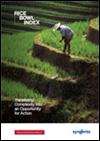 Paul Teng, Syngenta and Frontier Strategy Group, September 2012. Paul Teng, Syngenta and Frontier Strategy Group, September 2012.
The Rice Bowl Index is an initiative designed to facilitate positive productive dialogue, collaboration and action between governments, the private sector and other key stakeholders in the area of food security. It assesses how robust a country’s capacity is to address the challenges of food security. It is not a measure of a country’s actual level of food security. |
|
Expert Working Group Meeting on an ‘Asian Rice Futures Market’
 RSIS Centre for Non-Traditional Security (NTS) Studies RSIS Centre for Non-Traditional Security (NTS) Studies
Conference Report, September 2012.
On 22–23 March 2012, the RSIS Centre for NTS Studies hosted an Expert Working Group Meeting to discuss the call for Singapore to consider hosting an international rice futures market. Participants included major rice traders, heads of exchanges, economists, researchers, and representatives of governments and international institutions. This report contains a summary of the meeting findings. Further, it captures the robust discussions on the feasibility of an international rice futures market in current rice market conditions, the suitability of Singapore as potential host, and the potential impact of such a market on regional food security. |
|
Tackling Urban and Rural Food Wastage in Southeast Asia: Issues and Interventions
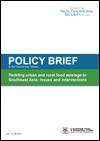 Paul Teng and Sally Trethewie, NTS Policy Brief, No. 17, Paul Teng and Sally Trethewie, NTS Policy Brief, No. 17,
RSIS Centre for Non-Traditional Security (NTS) Studies, October 2012.
Food wastage is prevalent in Southeast Asia and has significant implications for the region’s food, environmental and economic security. It is likely that the region wastes approximately 33 per cent of food, but accurate estimates are not available due to a dearth of quantitative information. Wastage occurs at all stages of food supply chains, from the point of production to post-harvest, retail and consumption. Effective interventions to prevent and minimise food wastage exist but are not widely implemented in Southeast Asia. In the context of these issues, the RSIS Centre for Non-Traditional Security (NTS) Studies hosted an Expert Working Group Meeting in August 2012 to discuss food wastage in Southeast Asia. This policy brief draws on the findings of the meeting and provides several policy recommendations for Southeast Asian governments to address urban and rural food wastage. |
|
Asia Security Initiative Interim Report 2012
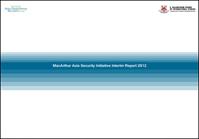 RSIS Centre for Non-Traditional Security (NTS) Studies RSIS Centre for Non-Traditional Security (NTS) Studies
Interactive Report, 2012.
This interactive report summarises the third year (July 2011 – June 2012) of the Asia Security Initiative (ASI) project of the RSIS Centre for Non-Traditional Security (NTS) Studies titled ‘Responding to Internal Crises and their Cross Border Effects’. It provides an overview of the project, as well as an in-depth discussion of the project’ s achievements and research outcomes of key activities convened over the past three years under the research programmes supported by the ASI – Internal and Cross-Border Conflict Programme; Climate Change, Environmental Security and Natural Disasters Programme; and Energy and Human Security Programme. |
|
Transboundary Rivers in the Hindu Kush-Himalaya (HKH) Region: Beyond the ‘water as Weapon’ Rhetoric
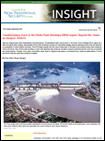 Pau Khan Khup Hangzo, NTS Insight, Pau Khan Khup Hangzo, NTS Insight,
RSIS Centre for Non-Traditional Security (NTS) Studies, September 2012.
Security analysts have often characterised the phenomenon of hydroelectric dam construction in the Hindu Kush-Himalaya (HKH) region as a zero-sum game. Most notably, they perceive China’s dam-building to be part of a calculated strategy aimed at exerting control over this resource at the expense of other riparian countries. This NTS Insight argues that this view is inaccurate. In the case of the transboundary rivers shared by China and South Asia, China’s dam-building is, more than anything else, driven by the need to ensure economic growth, and thus its political and social stability. However, as its dams could affect water flows in neighbouring states, a multilateral forum where all stakeholders in China and South Asia can voice their concerns is needed. |
|
Rio+20 Incorporated? Assessing Diplomatic Outcomes and Private Sector Actions on Sustainable Development
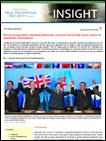 Jackson Ewing and Tarun Gopalakrishnan, NTS Insight, Jackson Ewing and Tarun Gopalakrishnan, NTS Insight,
RSIS Centre for Non-Traditional Security (NTS) Studies, August 2012.
The May 2012 NTS Alert entitled ‘Back to the Future: Is Rio+20 a 1992 Redux or Is There Cause for Optimism?’ explored the prospects for the June 2012 UN Conference on Sustainable Development (Rio+20), arguing that negotiators would struggle to reach consequential agreements but that the meeting would find value through non-state channels. This NTS Insight picks up where the NTS Alert left off. It highlights the emergence of the private sector as a significant driver of innovation and action on sustainability, but notes that optimism on this front must be tempered by caution, as the motivations of the private sector vary widely. Thus, robust official conference outcomes must still be considered relevant for sending signals to a range of stakeholders. |
|
Peace Pipeline to Pipe Dream and Back: How the TAPI Could Change South Asian Regionalism
 Tarun Gopalakrishnan, NTS Alert, Tarun Gopalakrishnan, NTS Alert,
RSIS Centre for Non-Traditional Security (NTS) Studies, August 2012.
The proposed Turkmenistan-Afghanistan-Pakistan-India (TAPI) pipeline has been cited as a potential driver of greater regional integration in South Asia. It is argued that the common quest for energy security could motivate South Asian states to move beyond antiquated perspectives based on non-intervention, and encourage the development of negotiating positions and multilateral dispute resolution mechanisms. However, the construction of the TAPI also brings with it a host of non-traditional security concerns, from loss of land, to human rights issues and environmental risks. Nations involved must thus not merely commit to cooperation, but also coordinate regionally on a range of issues that have a human security impact. |
|
Environmental Change and Ripples for Water Security in Southern Asia
 Dhanasree Jayaram, NTS Alert, Dhanasree Jayaram, NTS Alert,
RSIS Centre for Non-Traditional Security (NTS) Studies, July 2012.
Environmental change is regarded by many geopolitical experts as one of the biggest threats to international security in the coming years. In Southern Asia, its impact on rivers, and thus water security, is projected to be substantial. Such change, exacerbated by China’s water policies in the region that affect the flow of Tibetan rivers, could lead to increased socioeconomic, resource and political tensions. Against this background, this NTS Alert presents an overview of the impact of environmental change on the rivers of Southern Asia as well as on the existing river water sharing arrangements in the region; and argues that the future of these agreements could be imperilled by environmental change, particularly with the shifts being amplified by China’s river water management policies. |
|
Fish Biodiversity Research in the Mekong Basin
 E. Baran, N. Chum, M. Fukushima et al., The Biodiversity Observation Network in the Asia-Pacific Region: Towards Further Development of Monitoring, Tokyo: Springer, pp. 149–64, 2012. E. Baran, N. Chum, M. Fukushima et al., The Biodiversity Observation Network in the Asia-Pacific Region: Towards Further Development of Monitoring, Tokyo: Springer, pp. 149–64, 2012.
The Mekong River is one of the great rivers of the world and is characterised by high fish biodiversity. A number of organisations are working at observing and protecting aquatic biodiversity in this hotspot of global importance. This chapter reviews the activities of five international, regional, and national organisations involved in Mekong fish biodiversity research. For each institution, recent projects, modes of operation, issues faced, and priorities for improved observation and protection of biodiversity, are examined. |
|
Culture, Social Relations and Private Sector Development in the Thai and Vietnamese Fish Hatchery Sectors
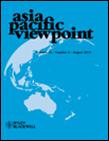 B. Belton, Asia Pacific Viewpoint, Vol. 53, No. 2, pp. 133–46, 2012. B. Belton, Asia Pacific Viewpoint, Vol. 53, No. 2, pp. 133–46, 2012.
This paper provides a comparative analysis of the social and cultural dimensions of fish hatchery development in Vietnam and Thailand. Two detailed case studies highlight the importance of a variety of culturally mediated, informal interpersonal relationships in facilitating the establishment of new hatchery enterprises. The analysis reveals that in both Vietnam and Thailand, informal relationships are extremely effective conduits for the transfer of productive technologies from public institutions to private entrepreneurs and for the subsequent development of private enterprises. It is concluded that if current policies aimed at promoting private sector development are to be more successful, they must be better tailored to the contours of specific cultural geographies in locations where they are implemented. |
|
Growth and Survival Rate of Three Genetic Groups Fed 28% and 34% Protein Diets
 Alexandra I. Santos, Nguyen Hong Nguyen, Raul W. Ponzoni et al., Aquaculture Research, August 2012. Alexandra I. Santos, Nguyen Hong Nguyen, Raul W. Ponzoni et al., Aquaculture Research, August 2012.
The strain by nutrition interaction in body weight and survival rate of fish was examined by testing three genetic groups (Selection and Control lines of the GIFT strain, and Red tilapia) at two levels of protein in the diet (28% and 34%). A total of 4335 fish were harvested, with individual body measurements and survival recorded. The effect of genetic group accounted for the largest proportion of variation in body weight and survival, followed by sex and protein level. Across the two dietary protein levels, the GIFT strain had the highest growth. |
|
Fisheries and Aquaculture: The Importance of Fish for Food and Nutritional Security
 Doug Beare in P. Thornton and L. Cramer (eds.), Impacts of Climate Change on the Agricultural and Aquatic Systems and Natural Resources within the CGIAR’s Mandate, CCAFS Working Paper 23, CGIAR Research Program on Climate Change, Agriculture and Food Security, Copenhagen, 2012. Doug Beare in P. Thornton and L. Cramer (eds.), Impacts of Climate Change on the Agricultural and Aquatic Systems and Natural Resources within the CGIAR’s Mandate, CCAFS Working Paper 23, CGIAR Research Program on Climate Change, Agriculture and Food Security, Copenhagen, 2012.
This working paper is an attempt to distil what is known currently about the likely impacts of climate change on the commodities and natural resources that comprise the mandate of the Consultative Group on International Agricultural Research (CGIAR) and its 15 centres. In this WorldFish contribution, a summary is given on the importance of fisheries and aquaculture on food nutrition and security. |
|
Selective Breeding in Fish and Conservation of Genetic Resources for Aquaculture
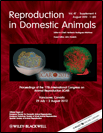 C.E. Lind, R.W. Ponzoni, N.H. Nguyen et al., Reproduction in Domestic Animals, Vol. 47, No. 4, July 2012. C.E. Lind, R.W. Ponzoni, N.H. Nguyen et al., Reproduction in Domestic Animals, Vol. 47, No. 4, July 2012.
To satisfy increasing demands for fish as food, progress must occur towards greater aquaculture productivity whilst retaining the wild and farmed genetic resources that underpin global fish production. This paper reviews the main selection methods that have been developed for genetic improvement in aquaculture, and discuss their virtues and shortcomings. In addition, the paper looks at the manner in which fish genetic resources can be lost at the intra-specific, species and ecosystem levels and discuss options to best prevent this. |
|
^ To the top
Commentaries and News Articles
Creating Ripples with Water Diplomacy
Pau Khan Khup Hangzo, TODAY, 27 September 2012.
Still Falling Short, in Preparing for Disaster
Gianna Gayle Amul, TODAY, 21 September 2012.
China Grasps for Growth Alternative
John Lee, Business Spectator, 11 September 2012.
Abbott Said What Needed to Be Said About China
John Lee, The Australian, 26 July 2012.
Should We Be Worried about Territorial Disputes in East Asia?
Rizal Sukma, The Jakarta Post, 29 August 2012.
Reducing Indonesia’s Health Risks: Filtering a Smoke-Free ASEAN?
Gianna Gayle H. Amul, RSIS Commentaries, No. 175, 17 September 2012.
Who ‘Is’ We? Thinking about Identity, Technology, Security and Development over 30 Years
Greg Mills, RSIS Commentary, August 2012.
A New Political Entity in Mindanao? Challenges of Election-related Dysfunction and Violence
Joseph Raymond S. Franco, RSIS Commentaries, No. 133, 23 July 2012.
Western Myanmar Unrest: Partisan Portrayals Risk Extremist Implications
Kyaw San Wai, RSIS Commentaries, No. 131, 18 July 2012.
Involving Indonesia in the Philippine Peace Process: Clearing Away ‘Inclement Weather’?
Joseph Raymond S. Franco, RSIS Commentaries, No. 119, 9 July 2012.
The ASEAN Human Rights Declaration: Establishing a Common Framework
Joel Ng, RSIS Commentaries, No. 114, 3 July 2012.
Hidden Hunger
Sally Trethewie, anza, 27 August 2012.
Cities Can be Part of Solution to Food Problem
Paul Teng, TODAYonline, 24 August 2012.
Experts Warn of Future Asia-Pacific Food Vulnerability
Paul Teng, Voice of America, 3 August 2012.
^ To the top
|